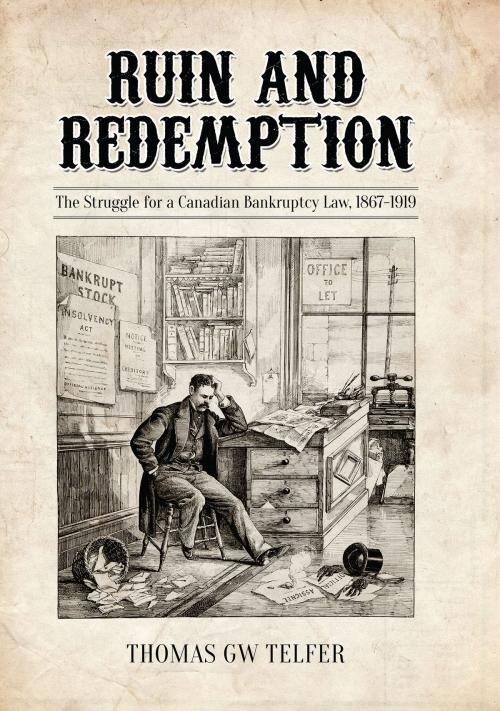Ruin and Redemption
The Struggle for a Canadian Bankruptcy Law, 1867-1919
Business & Finance, Business Reference, Business Law, Nonfiction, Reference & Language, Law, Legal History, Economics, Theory of Economics| Author: | Thomas G. W. Telfer | ISBN: | 9781442619692 |
| Publisher: | University of Toronto Press, Scholarly Publishing Division | Publication: | November 5, 2014 |
| Imprint: | Language: | English |
| Author: | Thomas G. W. Telfer |
| ISBN: | 9781442619692 |
| Publisher: | University of Toronto Press, Scholarly Publishing Division |
| Publication: | November 5, 2014 |
| Imprint: | |
| Language: | English |
In 1880 the federal Parliament of Canada repealed the Insolvent Act of 1875, leaving debtor-creditor matters to be regulated by the provinces. Almost forty years later, Parliament finally passed new bankruptcy legislation, recognizing that what was once considered a moral evil had become a commercial necessity. In Ruin and Redemption, Thomas G.W. Telfer analyses the ideas, interests, and institutions that shaped the evolution of Canadian bankruptcy law in this era. Examining the vigorous public debates over the idea of bankruptcy, Telfer argues that the law was shaped by conflict over the morality of release from debts and by the divergence of interests between local and distant creditors. R**uin and Redemption is the first full-length study of the origins of Canadian bankruptcy law, thus making it an important contribution to the study of Canada’s commercial law.
In 1880 the federal Parliament of Canada repealed the Insolvent Act of 1875, leaving debtor-creditor matters to be regulated by the provinces. Almost forty years later, Parliament finally passed new bankruptcy legislation, recognizing that what was once considered a moral evil had become a commercial necessity. In Ruin and Redemption, Thomas G.W. Telfer analyses the ideas, interests, and institutions that shaped the evolution of Canadian bankruptcy law in this era. Examining the vigorous public debates over the idea of bankruptcy, Telfer argues that the law was shaped by conflict over the morality of release from debts and by the divergence of interests between local and distant creditors. R**uin and Redemption is the first full-length study of the origins of Canadian bankruptcy law, thus making it an important contribution to the study of Canada’s commercial law.















